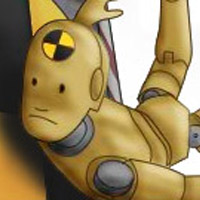
what is non utilitarian crime
Offenders constantly test the boundaries of permitted action, and if their "crimes" reflect the wishes or changing attitudes of the population, this can lead to legal reform. Hirschi (1969) suggests that criminal activity occurs when the strength of attachment between the individual and society - social bonds - weaken. Create the most beautiful study materials using our templates. Functionalists believe that society needs a certain level of crime, as this is inevitable, and it also performs significant positive functions. Critics point to the fact that there is an ample amount of crime/delinquent behavior that is non-utilitarian, malicious, and negativistic (OGrady, 2011), which highlights that not all crimes are explicable using Mertons theory. An interesting development of a form of rule utilitarianism by an influential moral theorist. Like other forms of consequentialism, its core idea is that whether actions are morally right or wrong depends on their effects. This suggests that we should not always perform individual actions that maximize utility. Unless critics can prove that common sense moral beliefs are correct the criticisms have no force. During examinations of crime and deviance, labelling theory focuses on how agencies of social control label certain acts as deviant, and what the effects of labelling are on both wider society and subsequent actions of the deviant individual. are made right or wrong by their actual consequences (the results that our actions actually produce) or by their foreseeable consequences (the results that we predict will occur based on the evidence that we have). Act utilitarianism stresses the specific context and the many individual features of the situations that pose moral problems, and it presents a single method for dealing with these individual cases. The form of success their culture values isn't achievable through legitimate means, so they turn to crime to achieve those goals. Rule utilitarians tend to agree with these criticisms of act utilitarianism and try to explain why rule utilitarianism is not open to any of these objections. Some may think that committing a crime is rational, with the offender considering the benefits and drawbacks of doing so before the criminal activity. i. Utilitarian Rationales a. Albert Cohen was a student of Talcott Parsons and wrote a Ph.D. under his inspiration. Primary deviance is relatively common, minor and label-free. Functionalism is a top-down theory, while interactionism is a bottom-up theory. What do Marxist feminists believe is the main cause of crime? Whatever they do must be constrained by rules that limit their power. We would always have to worry that some better option (one that act utilitarians would favor) might emerge, leading to the breaking of the persons promise to us. This is what defenders of rule utilitarianism claim. Similarly, if a government is choosing a policy, it should give equal consideration to the well-being of all members of the society. This helps in maintaining the capitalist social order. This contains fourteen articles, including essays defending utilitarianism by R. M. Hare and John Harsanyi, As the title suggests, however, most of the articles are critical of utilitarianism. The three cases just discussed show why act utilitarianism undermines trust but rule utilitarianism does not. Laws they are enforced more strictly among the poor. Moore criticizes aspects of Mills views but support a non-hedonistic form of utilitarianism. If a doctor can save five people from death by killing one healthy person and using that persons organs for life-saving transplants, then act utilitarianism implies that the doctor should kill the one person to save five. Their division of subcultures is a little reductive - there are quite a few overlaps between different types of deviance. In their view, whatever defects act utilitarianism may have, rule utilitarianism will have the same defects. In addition to applying in different contexts, it can also be used for deliberations about the interests of different persons and groups. lack the opportunities or means to succeed, which causes a feeling of inadequacy and personal failure. In other words, we can maximize the overall utility that is within our power to bring about by maximizing the utility of each individual action that we perform. According to Marxists, which are the most important relationships in society? Peter Singer. Consider Kants claim that lying is always morally wrong, even when lying would save a persons life. In his 1955 work, Delinquent Boys: The Culture of the Gang, Cohen wrote about delinquent gangs and suggested in his theoretical discussion how such gangs attempted to "replace" society's common norms and values with their own sub-cultures. You may not weigh some peoples interestsincluding your ownmore heavily than others. As a result, people who are innocent are sometimes prosecuted, convicted, and punished for crimes they did not do. This book contains several of them as well as works in which he applies rule utilitarian thinking to issues like rights and the ethics of war. Utilitarians argue that moral common sense is less absolutist than their critics acknowledge. Another way to describe the actual vs. foreseeable consequence dispute is to contrast two thoughts. To illustrate this method, suppose that you are buying ice cream for a party that ten people will attend. Because act utilitarians are committed to a case by case evaluation method, the adoption of their view would make peoples actions much less predictable. It doesnt acknowledge the power structures which benefit from punishing vulnerable populations (such as the working class). J. J. C. Smart (49) explains this difference by imagining the action of a person who, in 1938,saves someone from drowning. It can be used both for moral reasoning and for any type of rational decision-making. We will dive into examples of sociological theories of crime and their different perspectives. Charles Murray (1996) attributes the breakdown of social order to underclass men growing up without a male role model. Smarts discussion combines an overview of moral theory and a defense of act utilitarianism. 813/.54. Symbolic interactionists believe that society doesnt make people - instead, peoples sentiments collectively make society. If every action that we carry out yields more utility than any other action available to us, then the total utility of all our actions will be the highest possible level of utility that we could bring about. How does sociology relate to criminology? Which explanations does the functionalist perspective on crime and deviance tend to disregard? A discussion of Mills views and some recent interpretations of them. Upload unlimited documents and save them online. The most common argument against act utilitarianism is that it gives the wrong answers to moral questions. What are the five adaptive responses to strain to anomie, according to strain theory? Strain theory suggests that crime occurs when there are insufficient legitimate means or opportunities available to achieve the goals set by society e.g. So the correct rule need not be never go through a stop sign but rather can be something like never go through a stop sign except in cases that have properties a and b. In addition, there will remain many things about driving or other behavior that can be left to peoples discretion. Rule utilitarians believe that their view is also immune to the criticism that act utilitarianism is too demanding. Act utilitarians see the stop sign as too rigid because it requires drivers to stop even when nothing bad will be prevented. Brandt, who coined the terms act and rule utilitarianism, explains and criticizes act utilitarianism and tentatively proposes a version of rule utilitarianism. Brandt developed and defended rule utilitarianism in many papers. The key difference between act and rule utilitarianism is that act utilitarians apply the utilitarian principle directly to the evaluation of individual actions while rule utilitarians apply the utilitarian principle directly to the evaluation of rules and then evaluate individual actions by seeing if they obey or disobey those rules whose acceptance will produce the most utility. Stephen Nathanson. In each of these cases then, rule utilitarians can agree with the critics of act utilitarianism that it is wrong for doctors, judges, and promise-makers to do case by case evaluations of whether they should harm their patients, convict and punish innocent people, and break promises. Thirteen essays on utilitarianism, many focused on issues concerning rule utilitarianism. (It would be wrong, for example, for a parent to injure children who are running in a school race in order to increase the chances that their own children will win.) crime that has no material gain. According to Kant, if A is trying to murder B and A asks you where B is, it would be wrong for you to lie to A, even if lying would save Bs life (Kant). Walter Sinnott-Armstrong, Consequentialism,. There needed to be a stable, cohesive working class community with contacts in both the mainstream and illegal Utilitarianism appears to be a simple theory because it consists of only one evaluative principle: Do what produces the best consequences. The form which these relationships take is what provides the context for other types of relationships, like political and cultural ones. Act utilitarians say that they recognize that rules can have value. According to Singer, a person should keep donating money to people in dire need until the donor reaches the point where giving to others generates more harm to the donor than the good that is generated for the recipients. Theorists such as Taylor, Walton and Young (1973) believe that not all working-class criminals are forced to break the law; rather, some of them actively choose to do so. We will first look at the foundations of sociological theories of crime. While there are circumstances in which the utilitarian analysis focuses on the interests of specific individuals or groups, the utilitarian moral theory requires that moral judgments be based on what Peter Singer calls the equal consideration of interests. Utilitarianism moral theory then, includes the important idea that when we calculate the utility of actions, laws, or policies, we must do so from an impartial perspective and not from a partialist perspective that favors ourselves, our friends, or others we especially care about. They tell us thou shalt not do x rather than saying thou shalt not do x except in circumstances a, b, or c.. This debate will not be further discussed in this article. A criminogenic society is one where crime is inevitable due to its nature. According to Chambliss (1976), laws that protect property ownership rights are much more loosely implemented than those that protect trade unions., Selective enforcement refers to the disproportionate prosecution of working-class criminals. What approach do symbolic interactionists take to studying society? Instead of saying that we can violate a general rule whenever doing so will maximize utility, the rule utilitarian code might say things like Do not lie except to prevent severe harms to people who are not unjustifiably threatening others with severe harm. This type of rule would prohibit lying generally, but it would permit lying to a murderer to prevent harm to the intended victims even if the lie would lead to harm to the murderer. Beckers (1963) famous example of crime as a social construction compares medicinal injections with heroin. As a result, some end up breaking the law. The result, they say, is a loss of utility each time a driver stops at a stop sign when there is no danger from oncoming cars. Earn points, unlock badges and level up while studying. There are two reasons that show why it is false. Once we determine what these rules are, we can then judge individual actions by seeing if they conform to these rules. Others may hold the opinion that criminals are inherently different from law-abiding people in terms of biology or psychology. On a fundamental level, what are the foundations of sociological theories of crime? In this series of papers, Lyons defends Mills view of morality against some critics, differentiates Mills views from both act and rule utilitarianism, and criticizes Mills attempt to show that utilitarianism can account for justice. Status frustration, a concept created by A. Cohen (1955), describes the feelings of individuals who desire social status but who lack the opportunities or means to succeed, which causes a feeling of inadequacy and personal failure.





